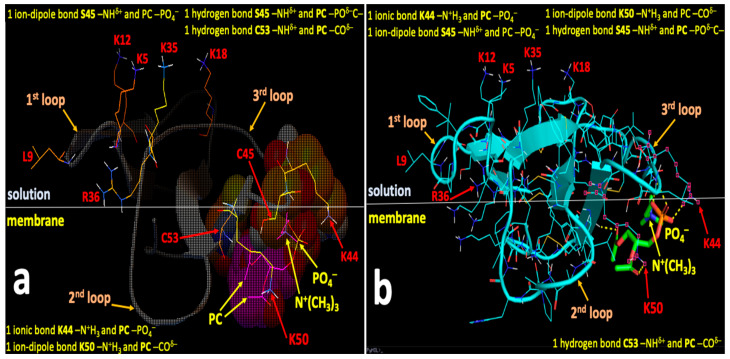Figure 8.
Autodock (a) and Pymol (b) diagrams showing the interaction of CTII with the polar head group of PC as shown in balls-cartoon-lines (CTII) and cartoon-sticks (PC) representations. CTII binds to the phospholipid membrane surface in a horizontal orientation by using three loop tips of CTII facing the viewer. Carbon atoms of PC are presented in the Autodock diagram as pink balls and in the Pymol diagram as green sticks. Atoms of amino acid residues interacting with PC are shown as balls and lines (Autodock) or pink squares (Pymol). The ball and stick diagram of K50 is not shown (only lines are given) as it covers the diagram of PC. Intermolecular bonds in the Pymol diagram are shown as yellow broken lines. Types of bonds are described in yellow label sentences both in the Autodock and Pymol diagrams. Amino acid residues K5, K12, K18 and K35, which presumably bind phospholipids of a neighboring phospholipid membrane, are depicted as lines in both the Autodoc and Pymol diagrams.

